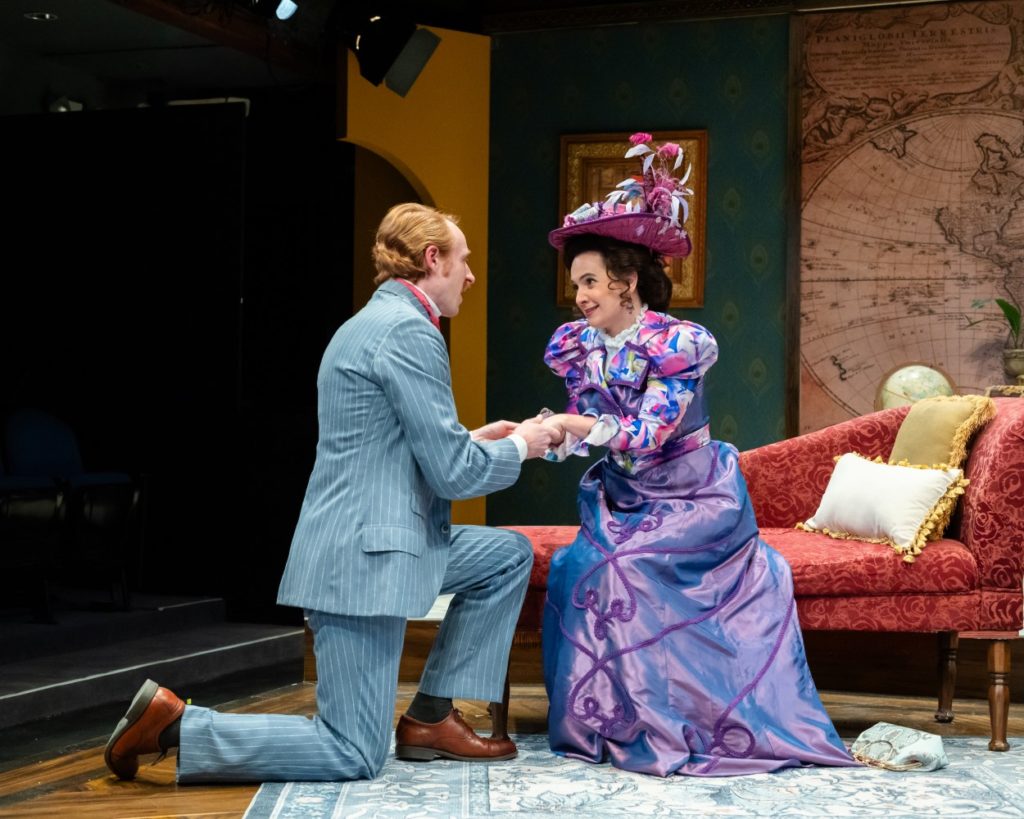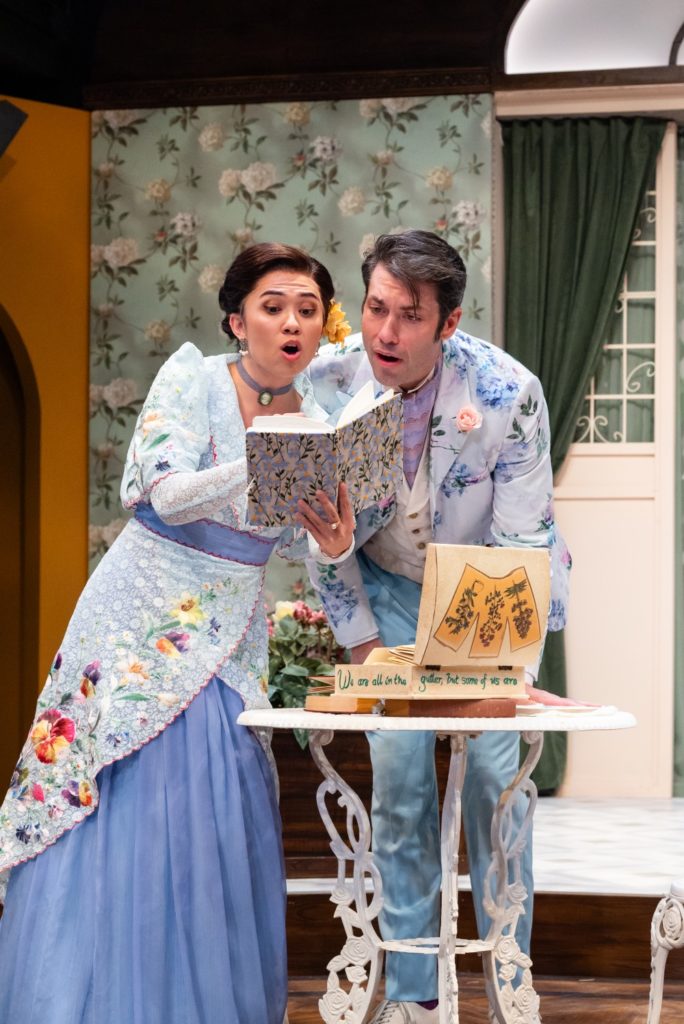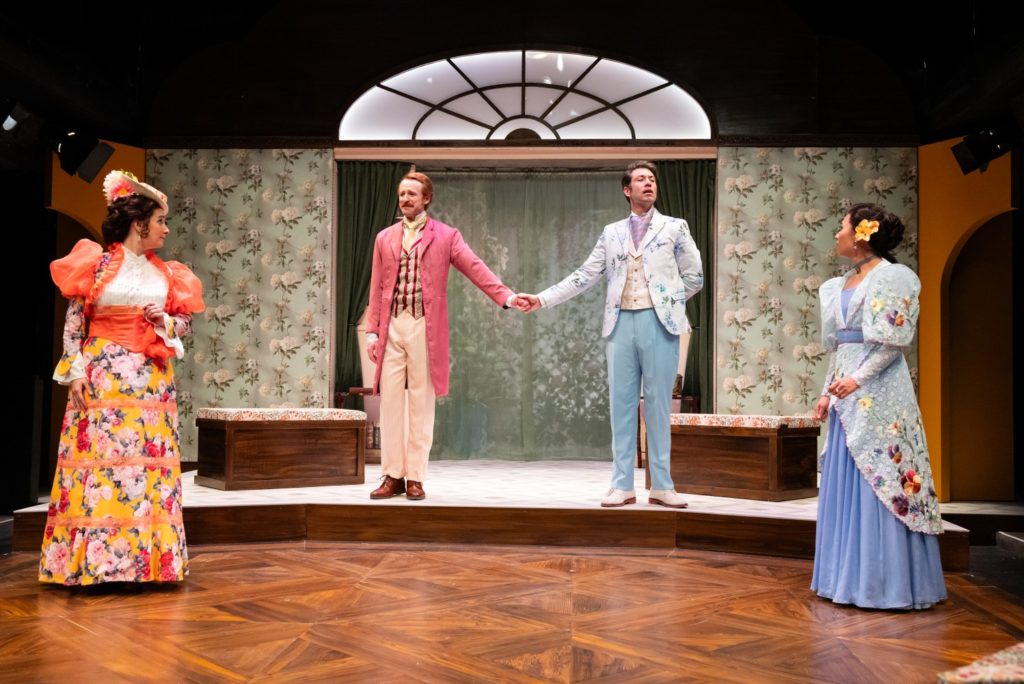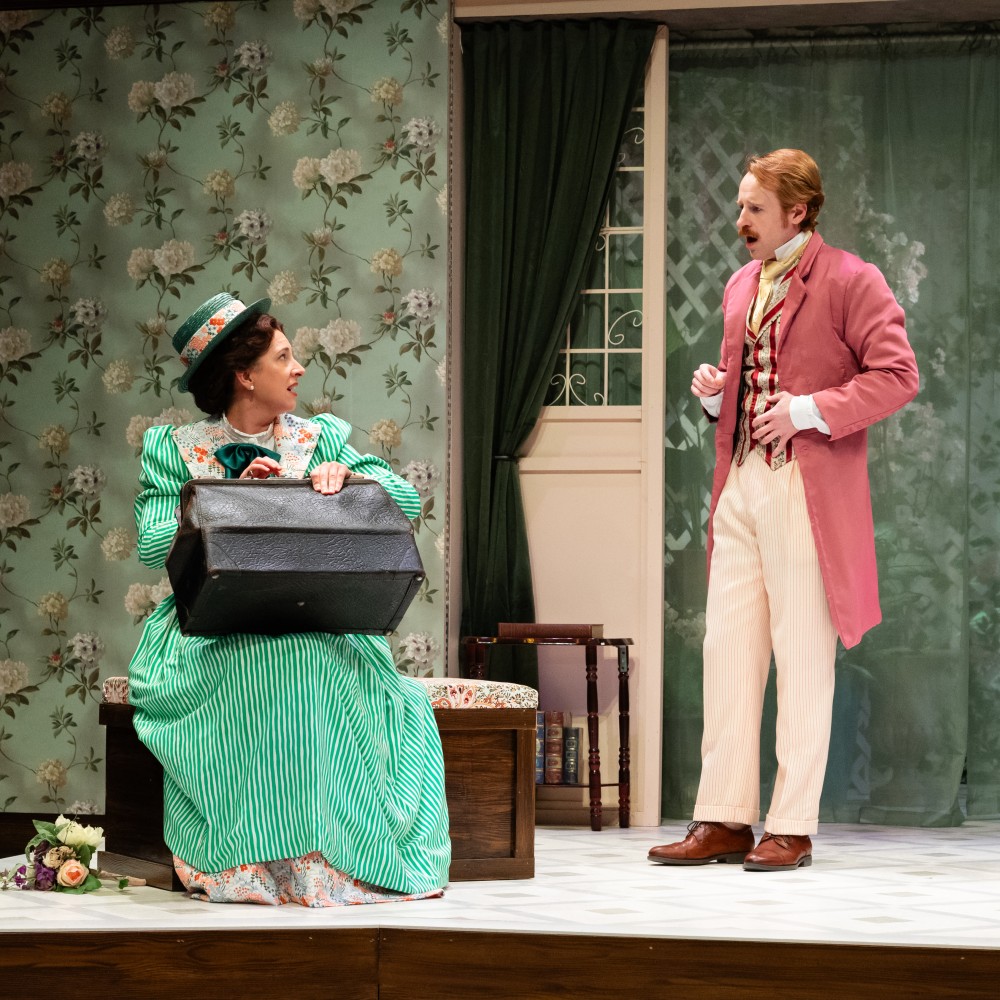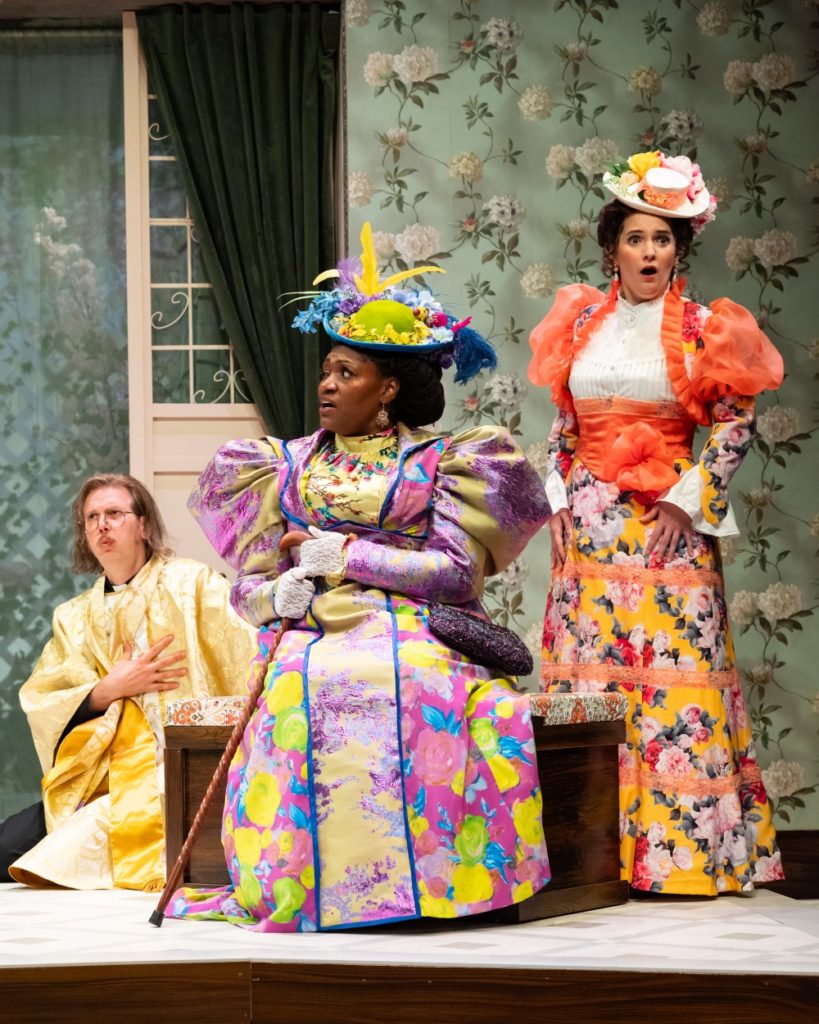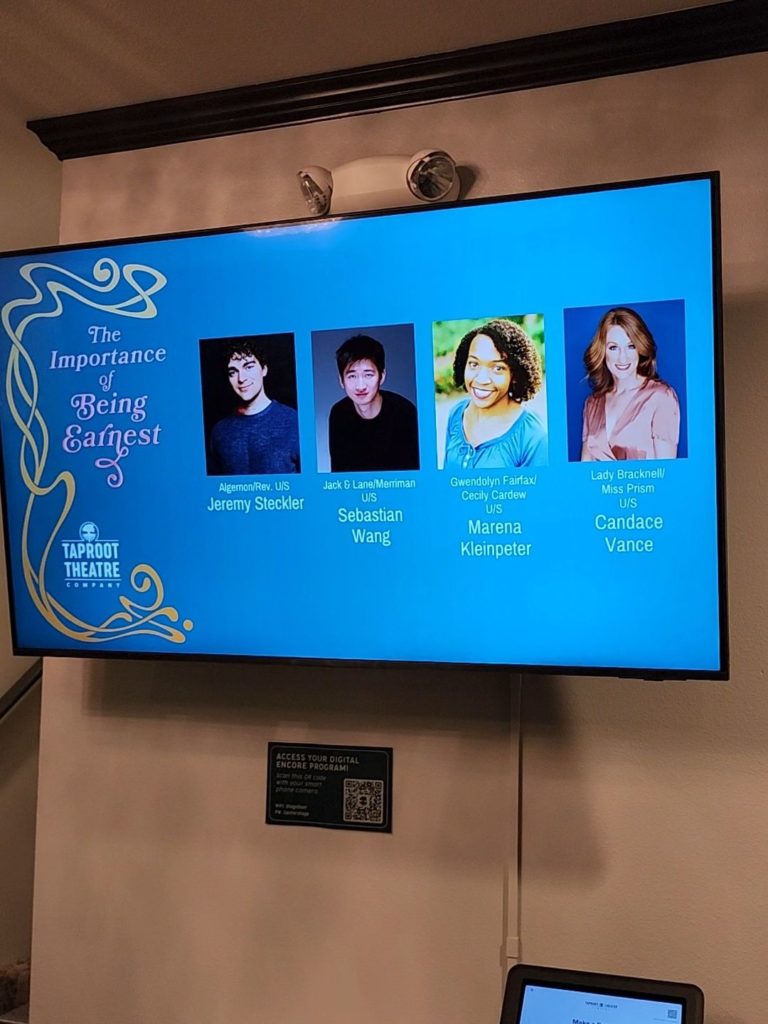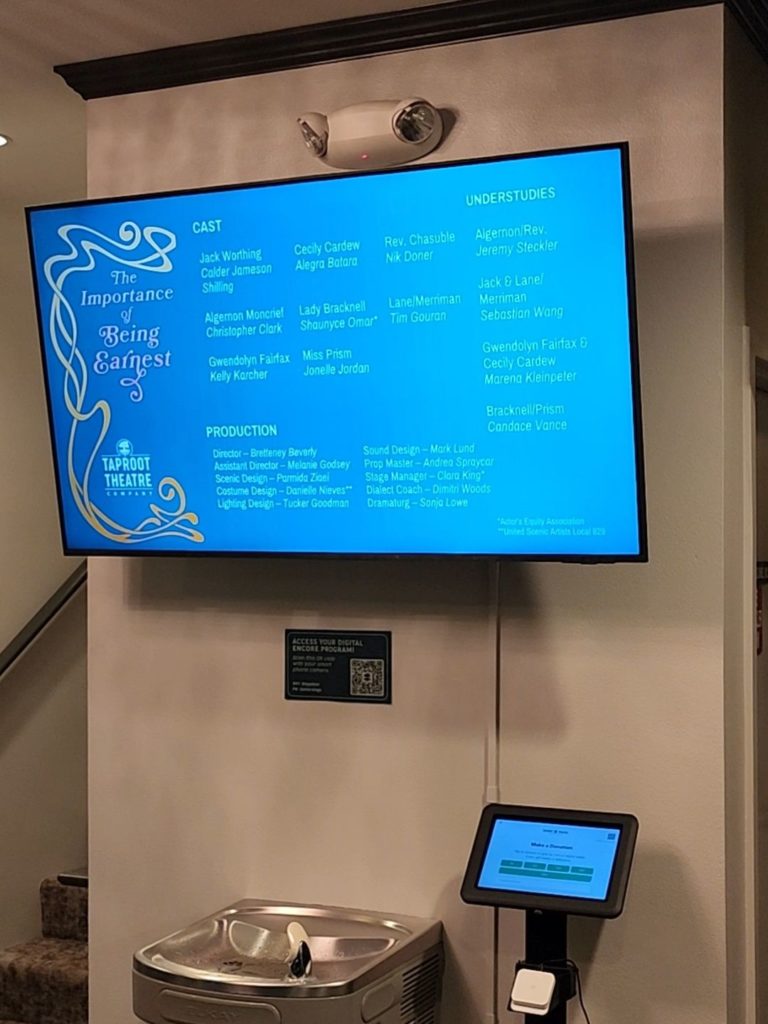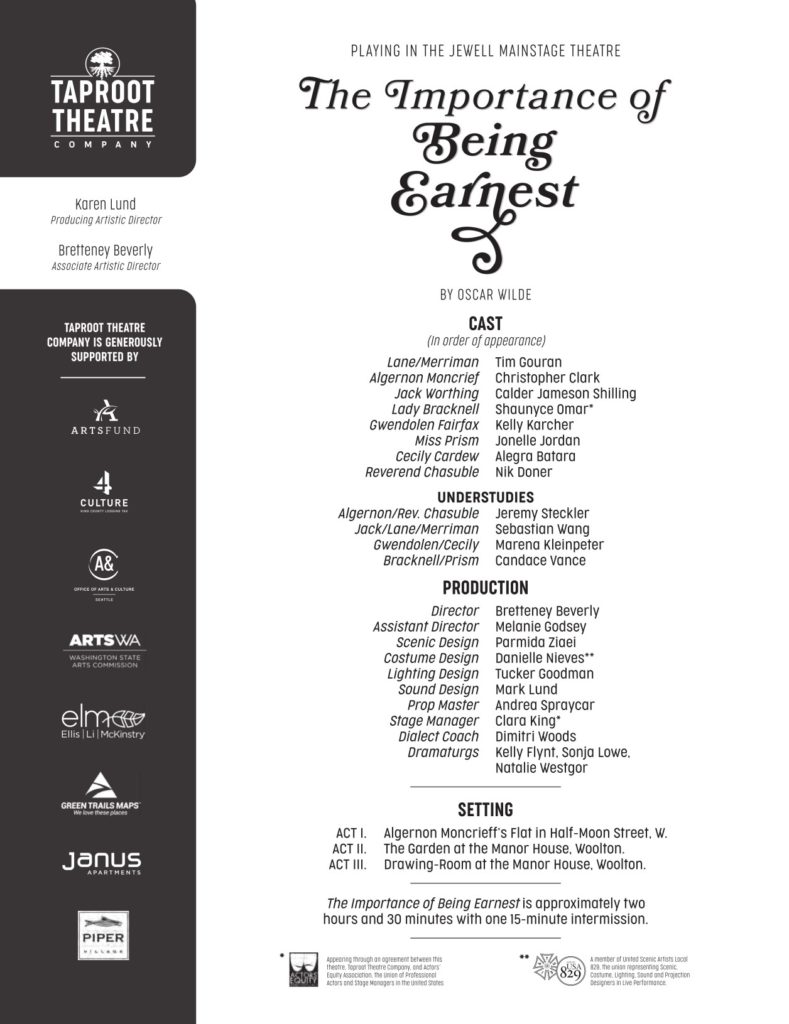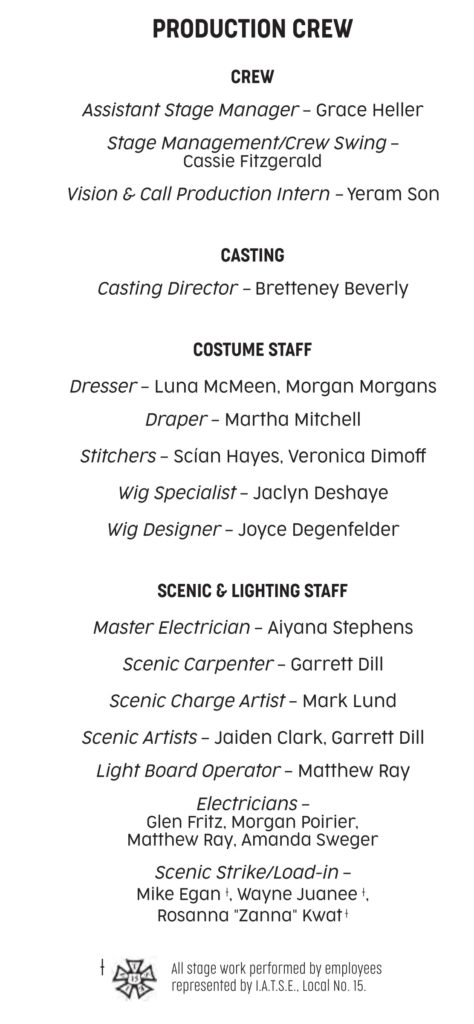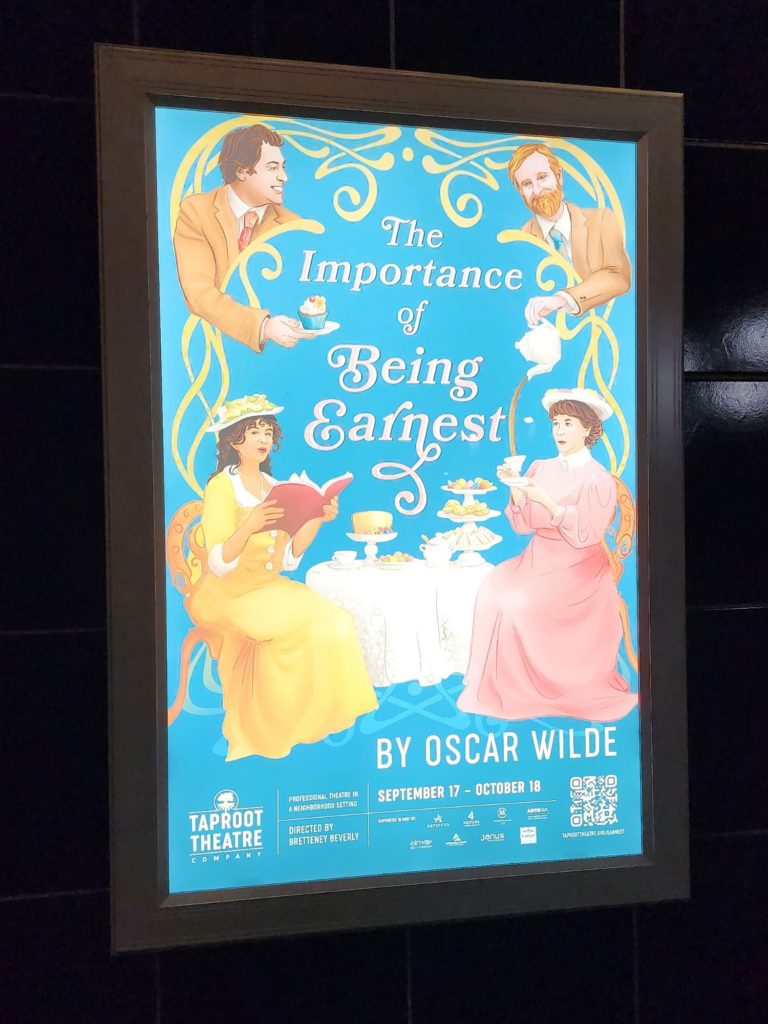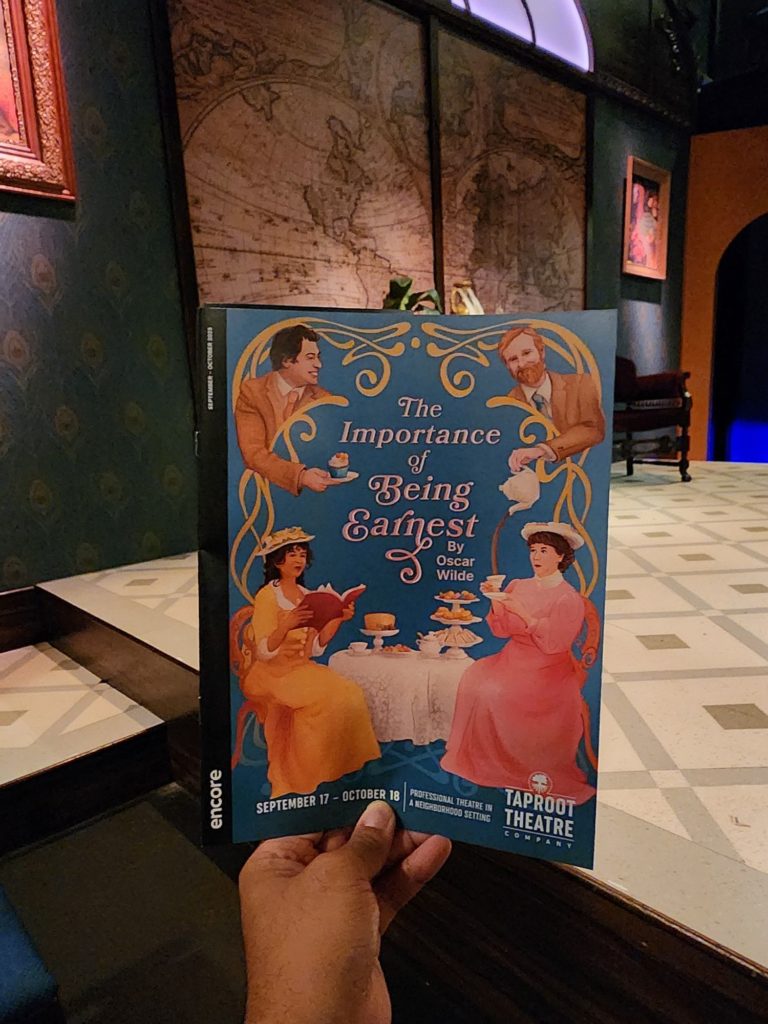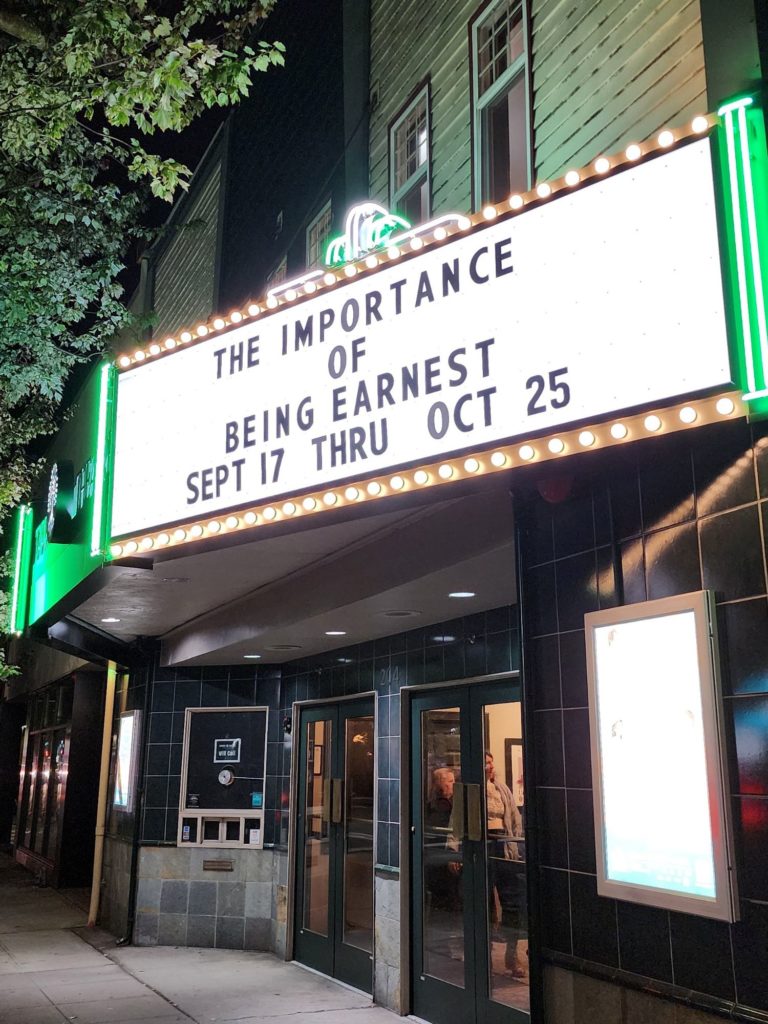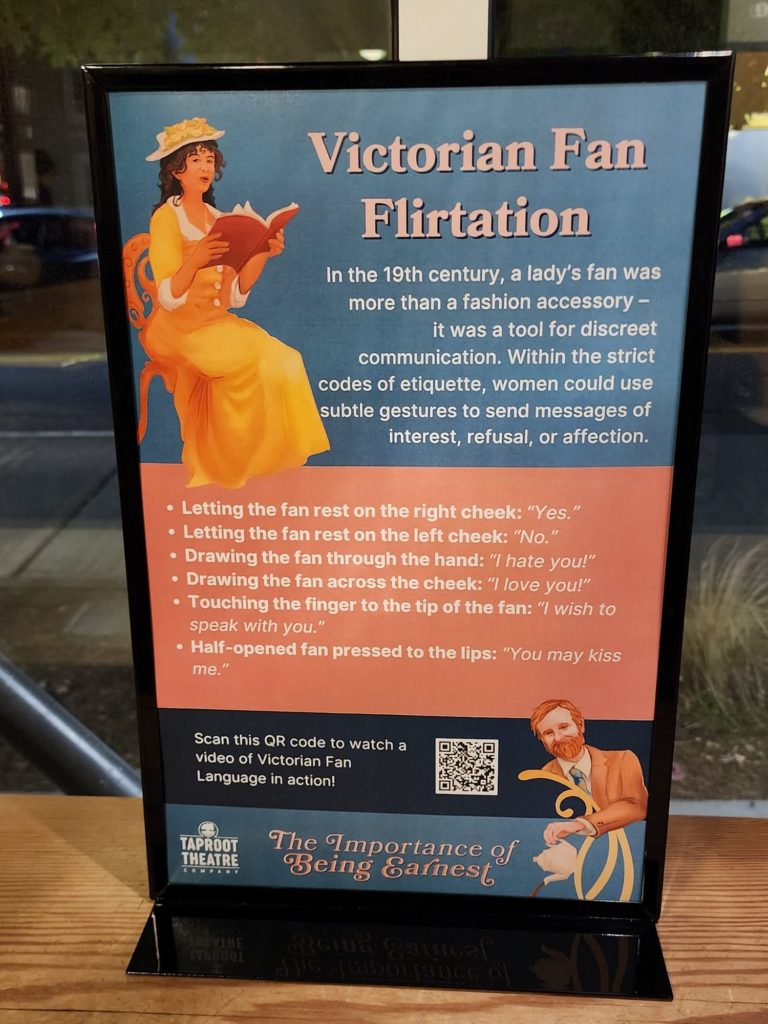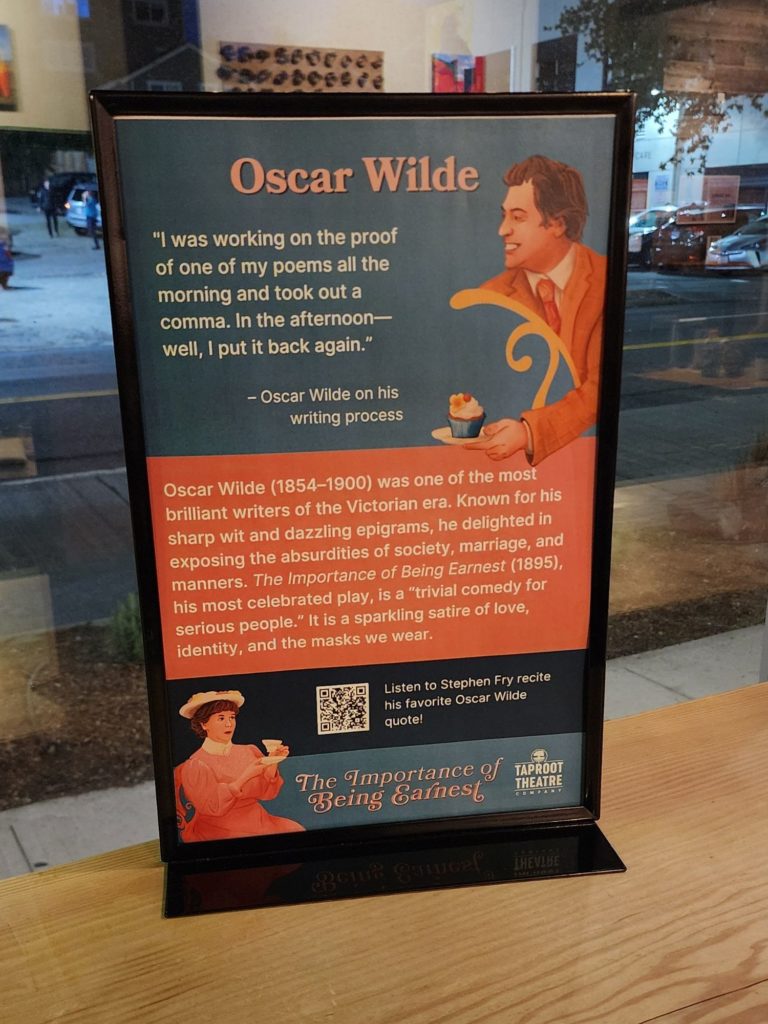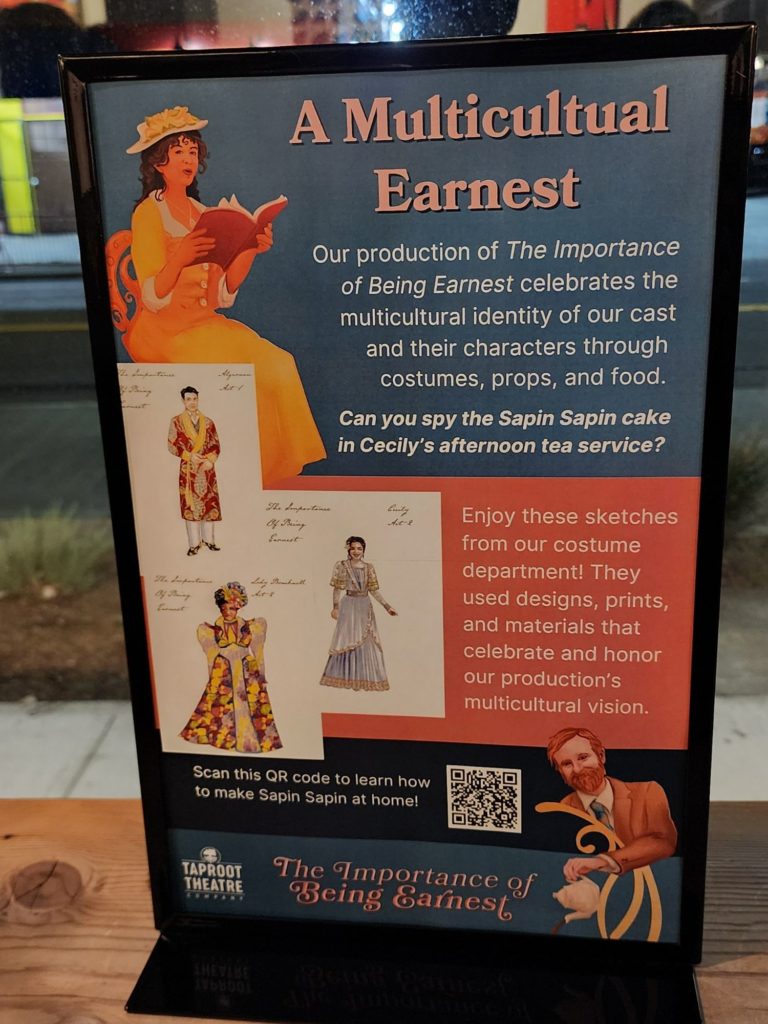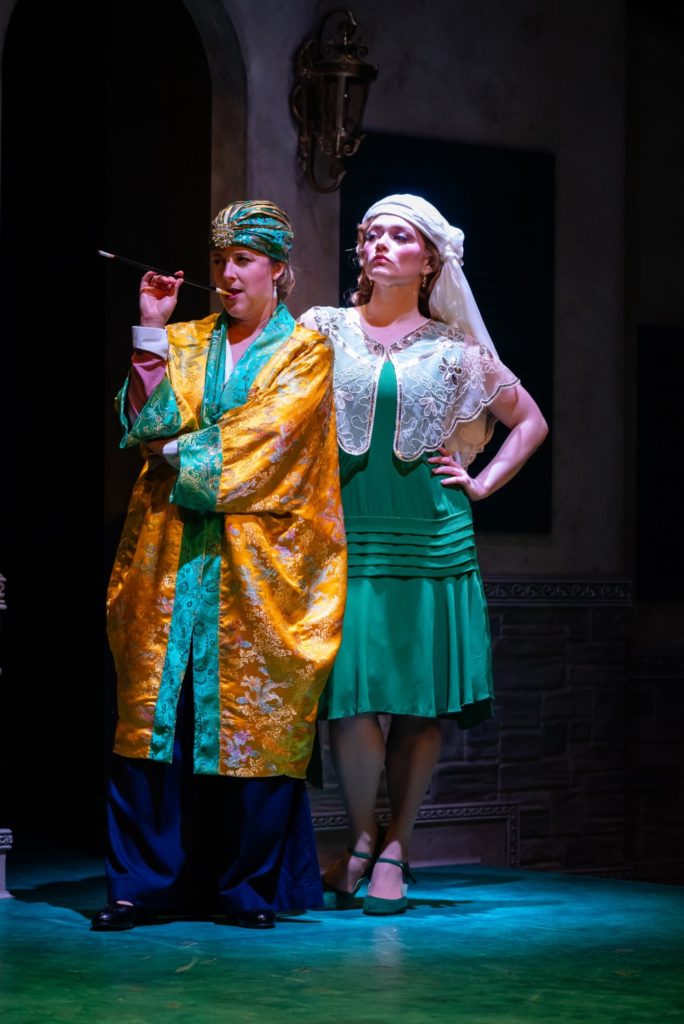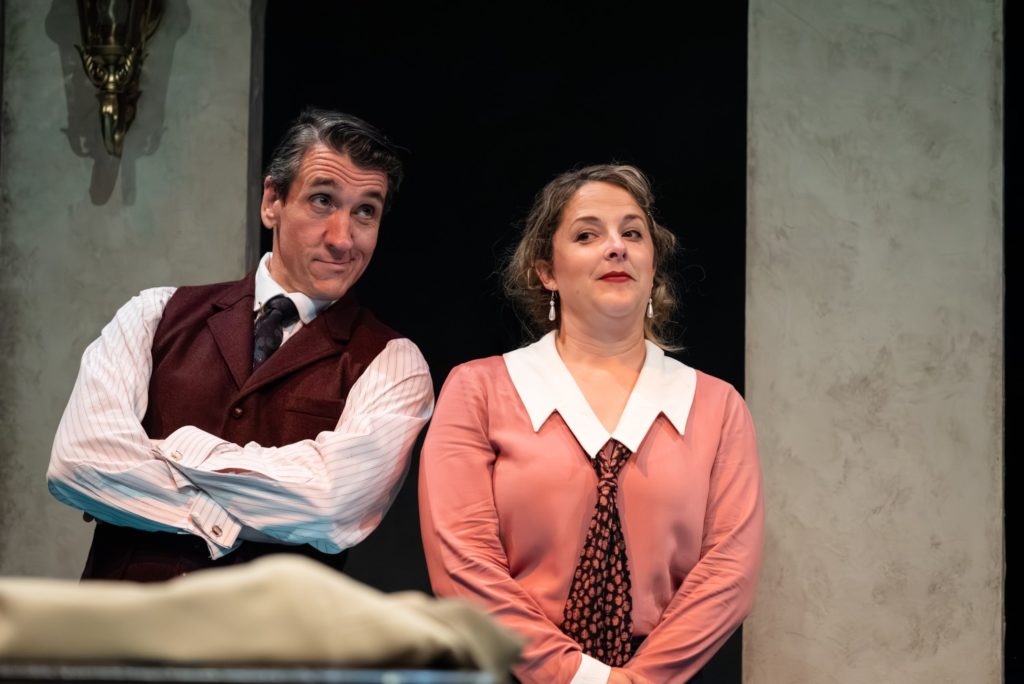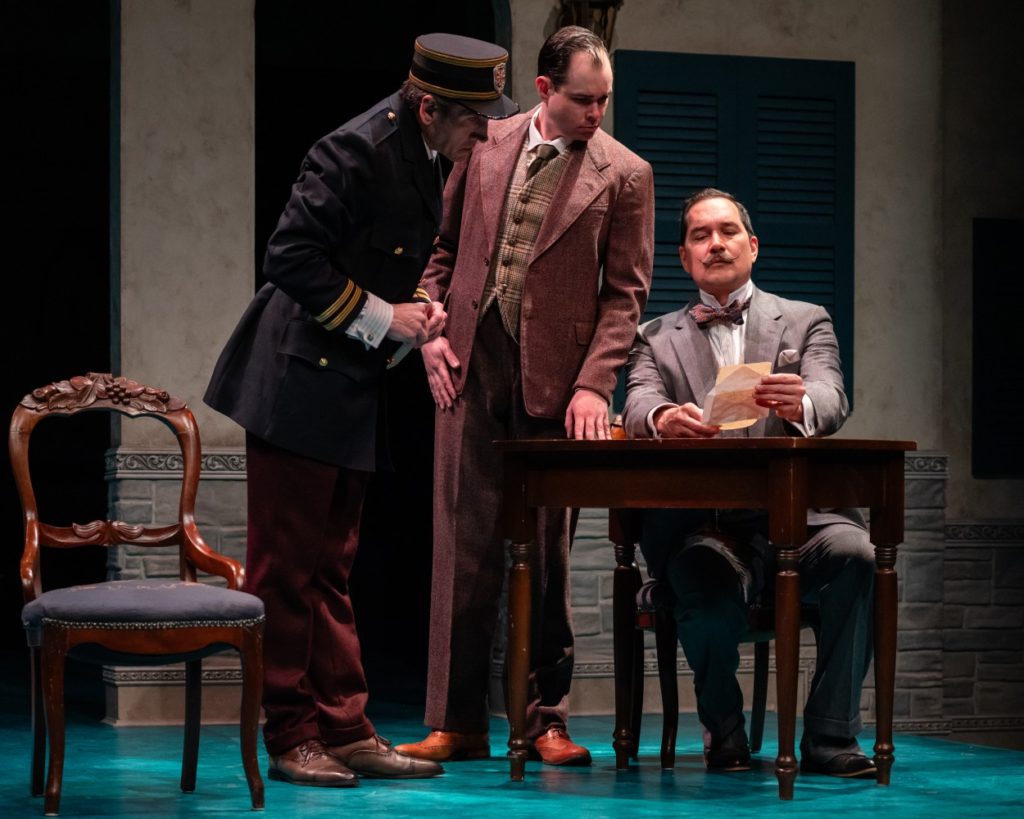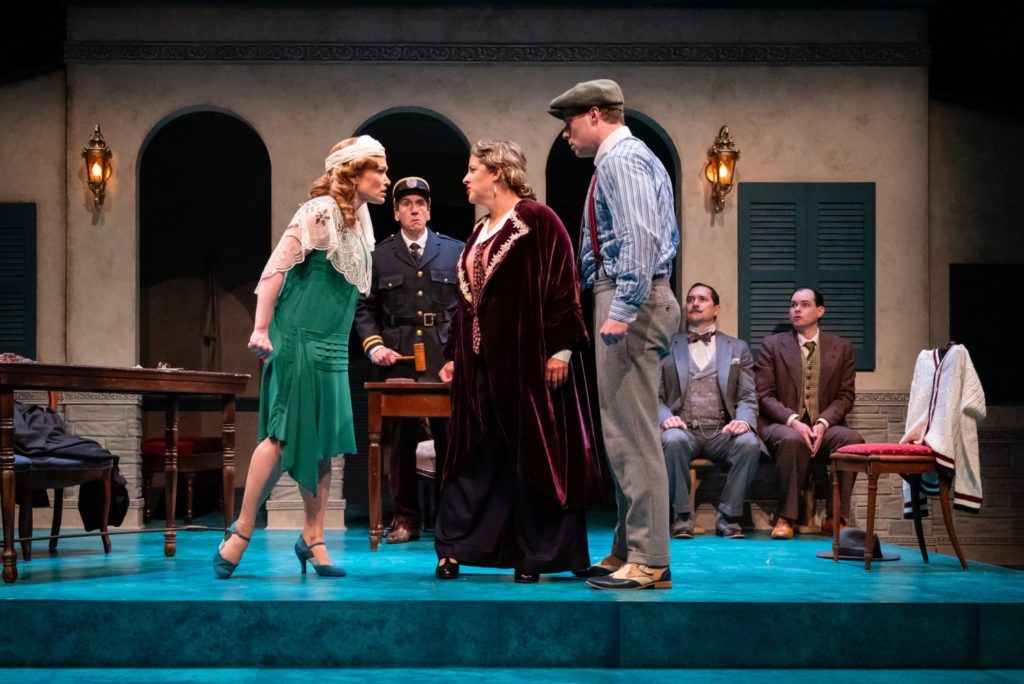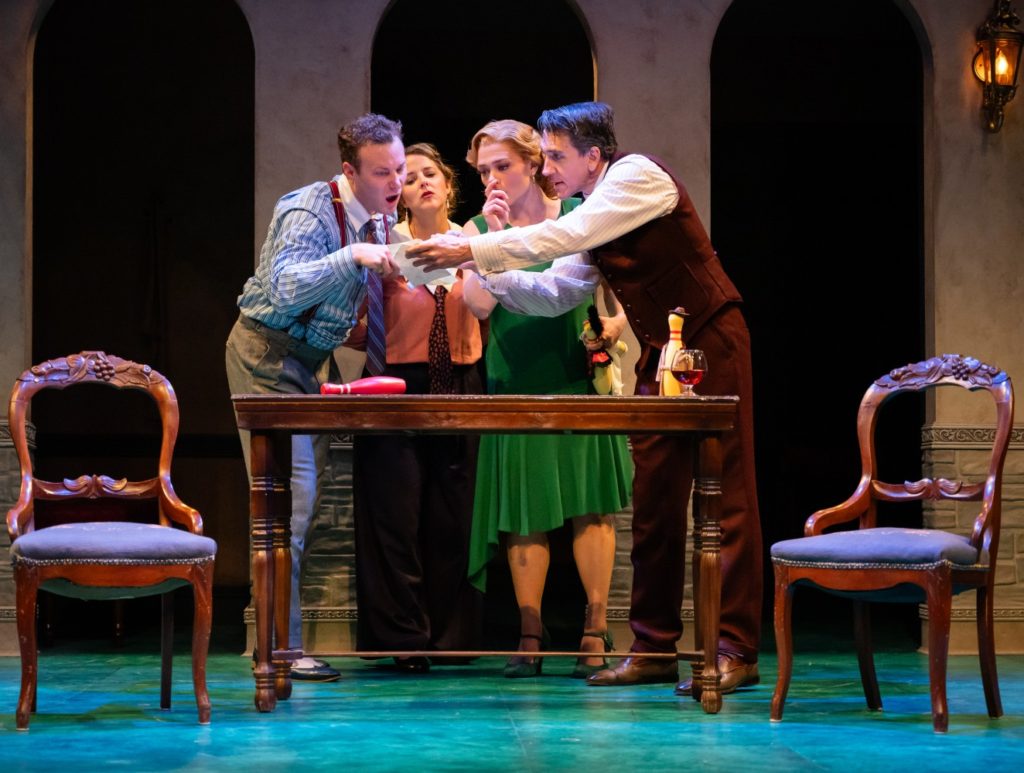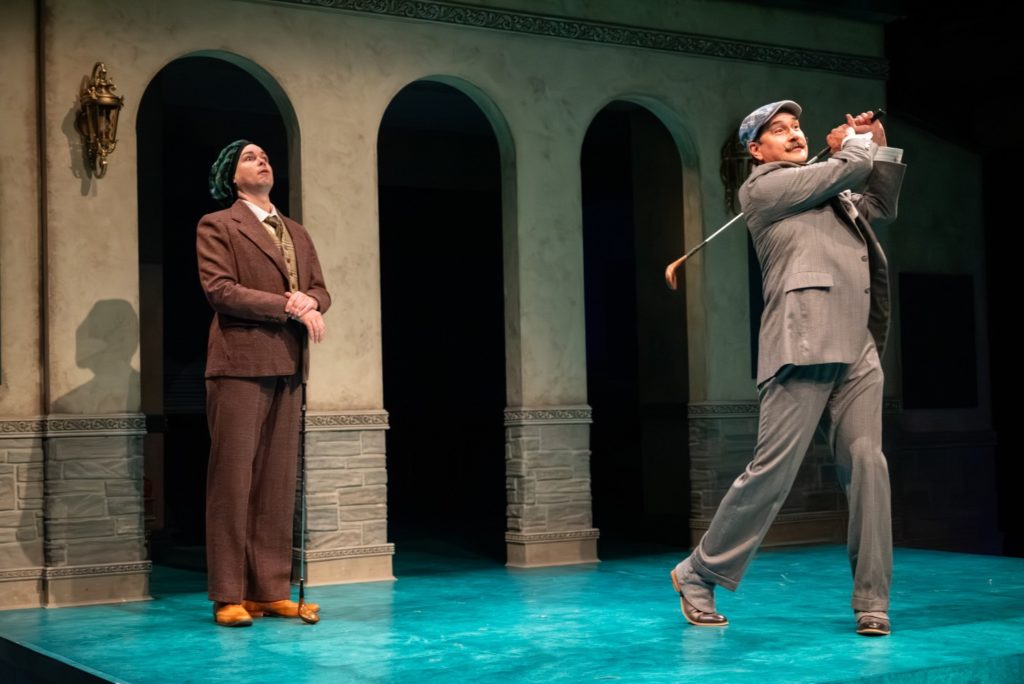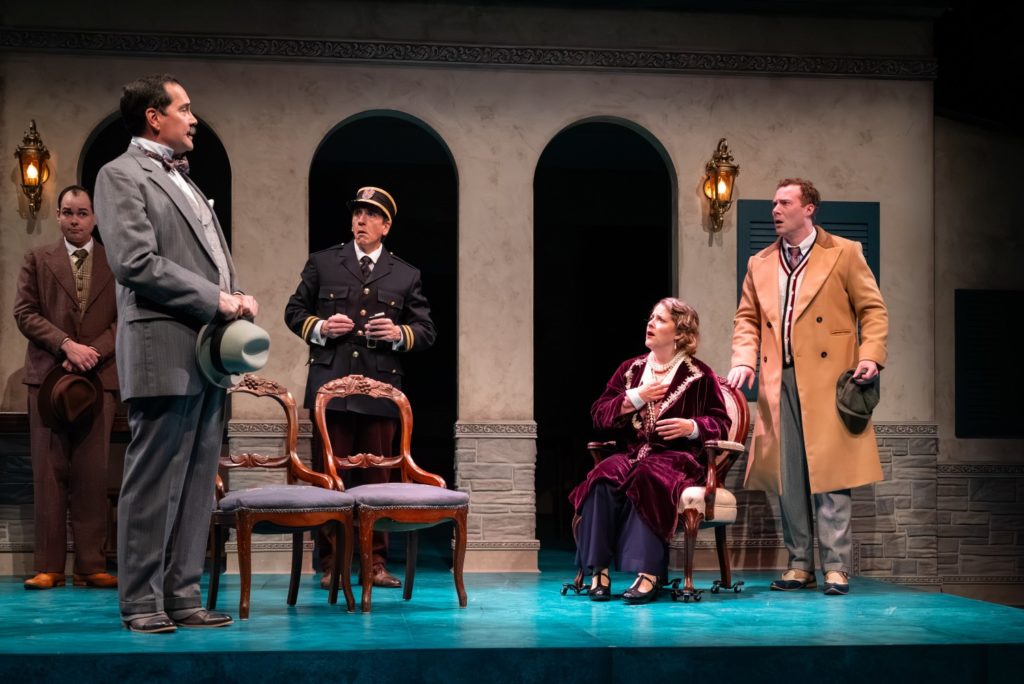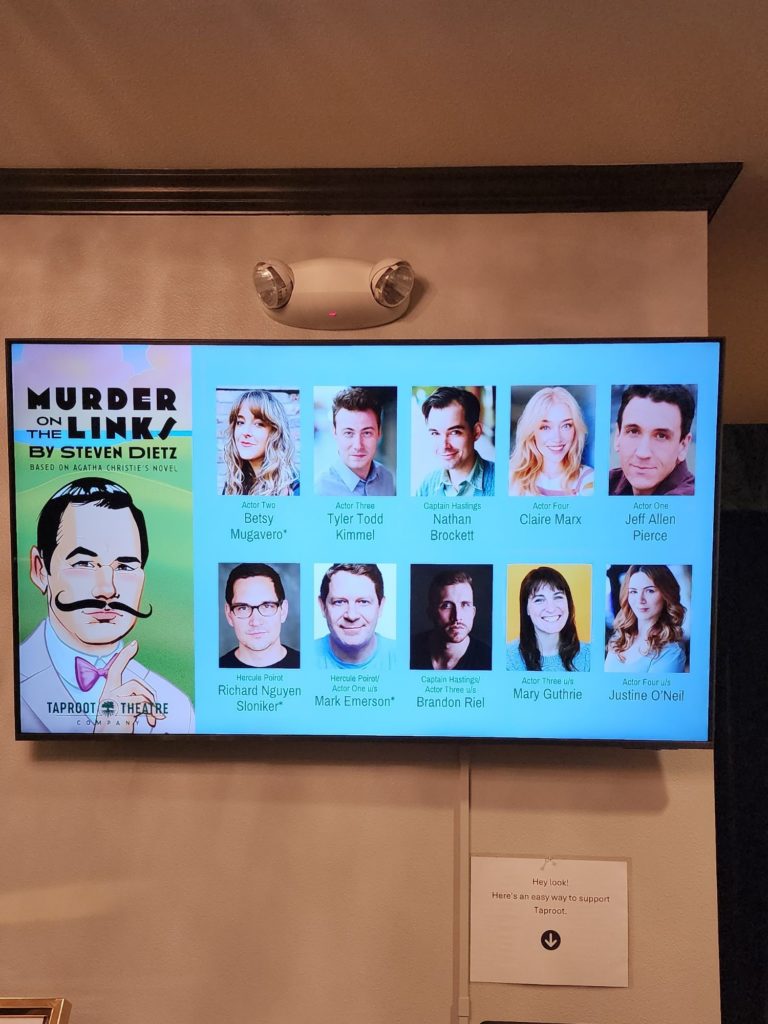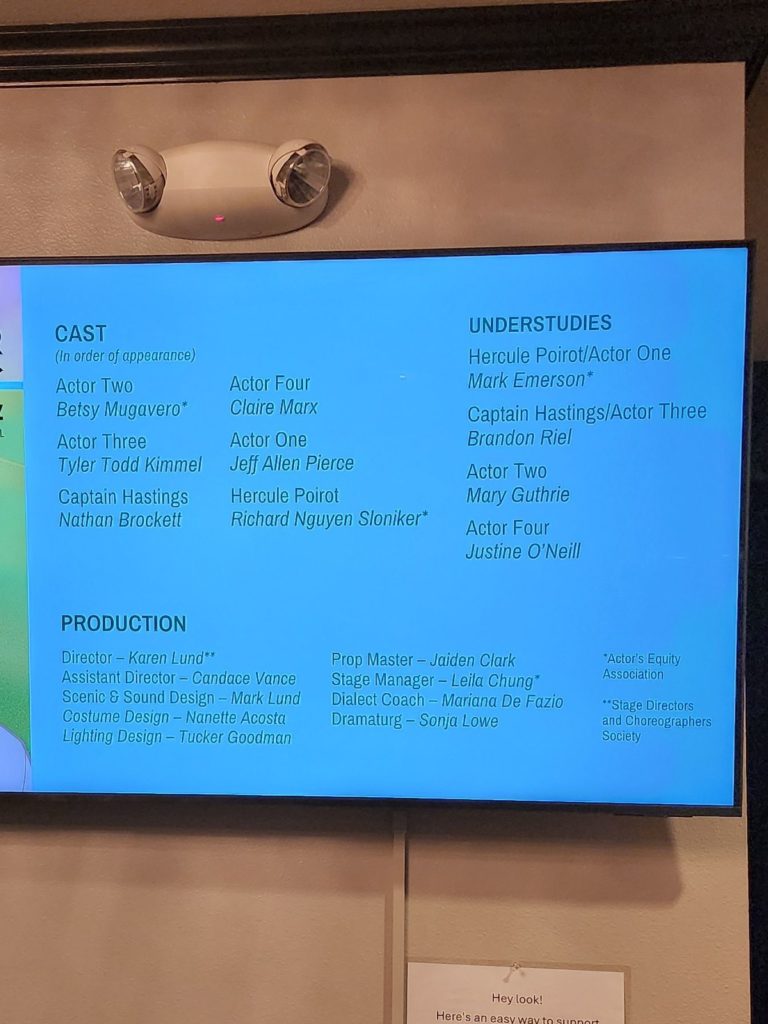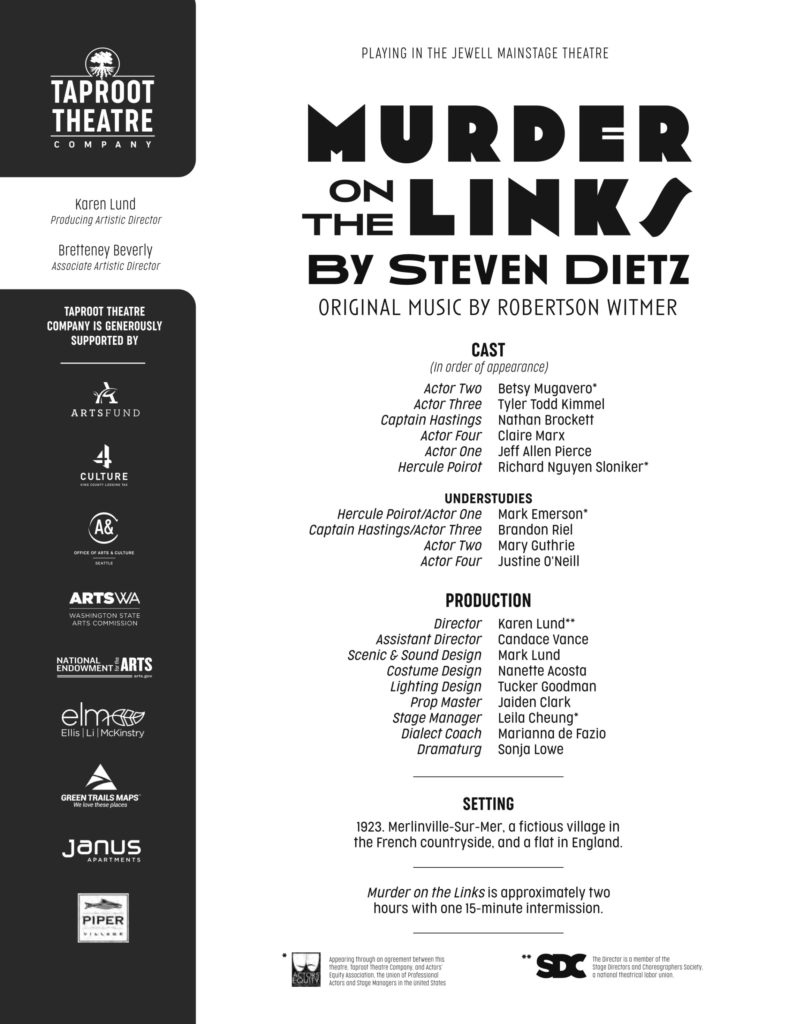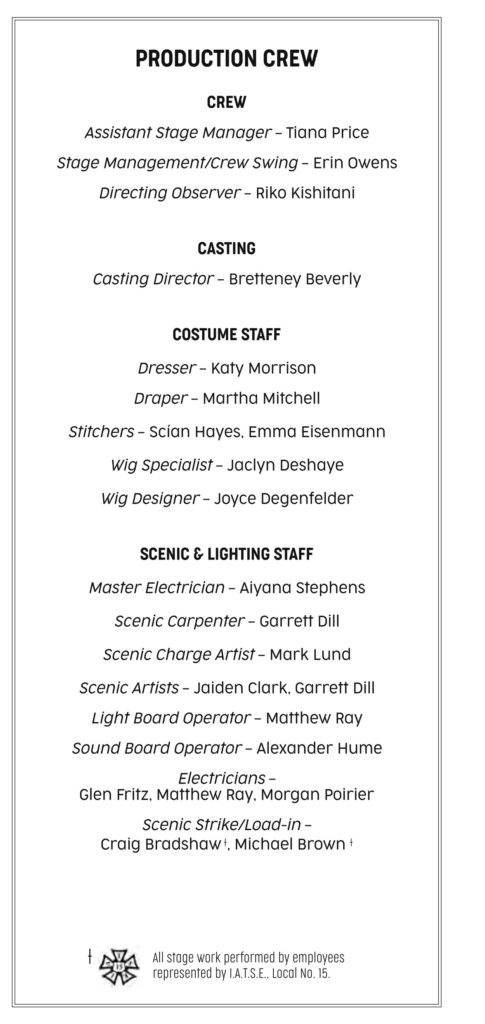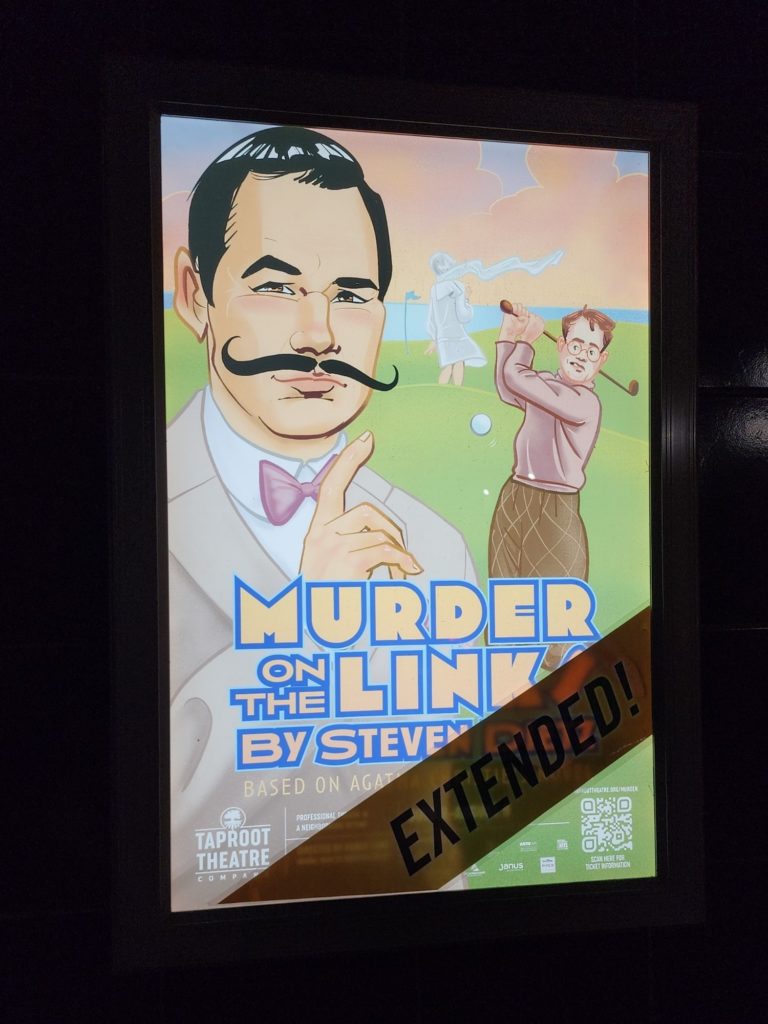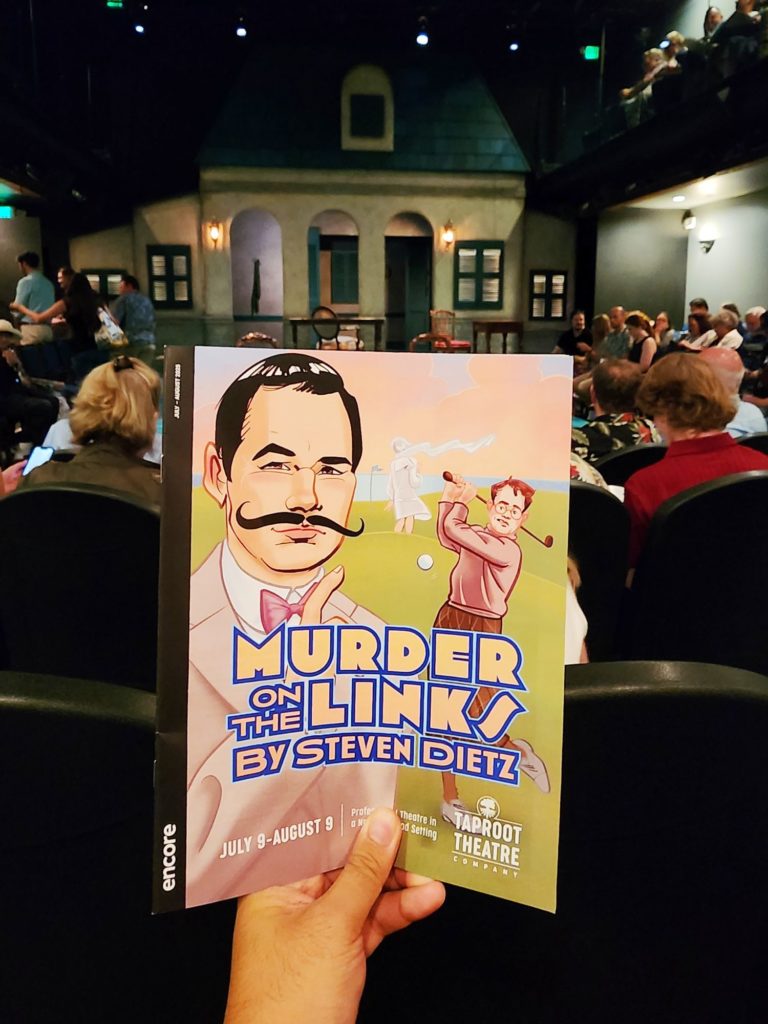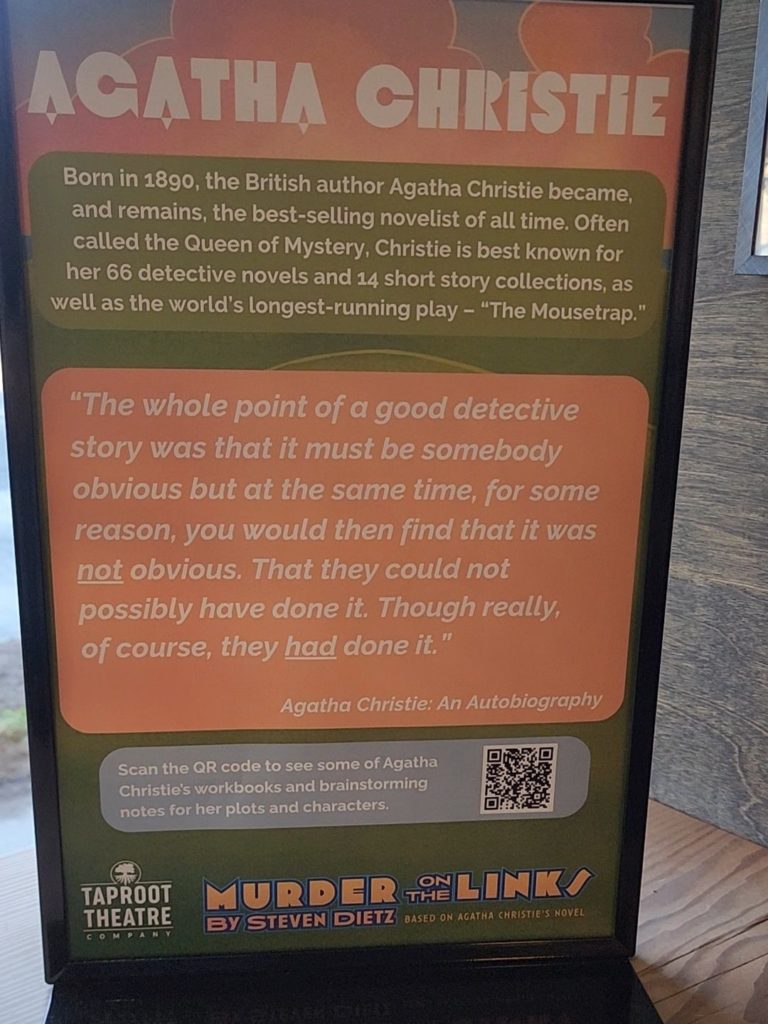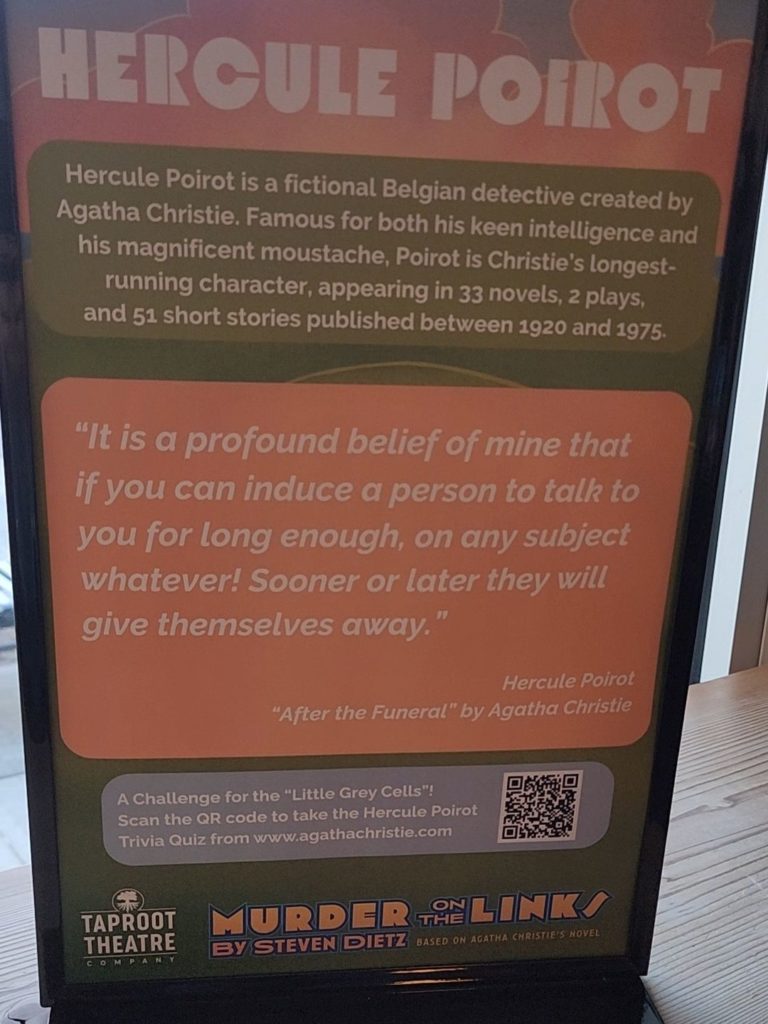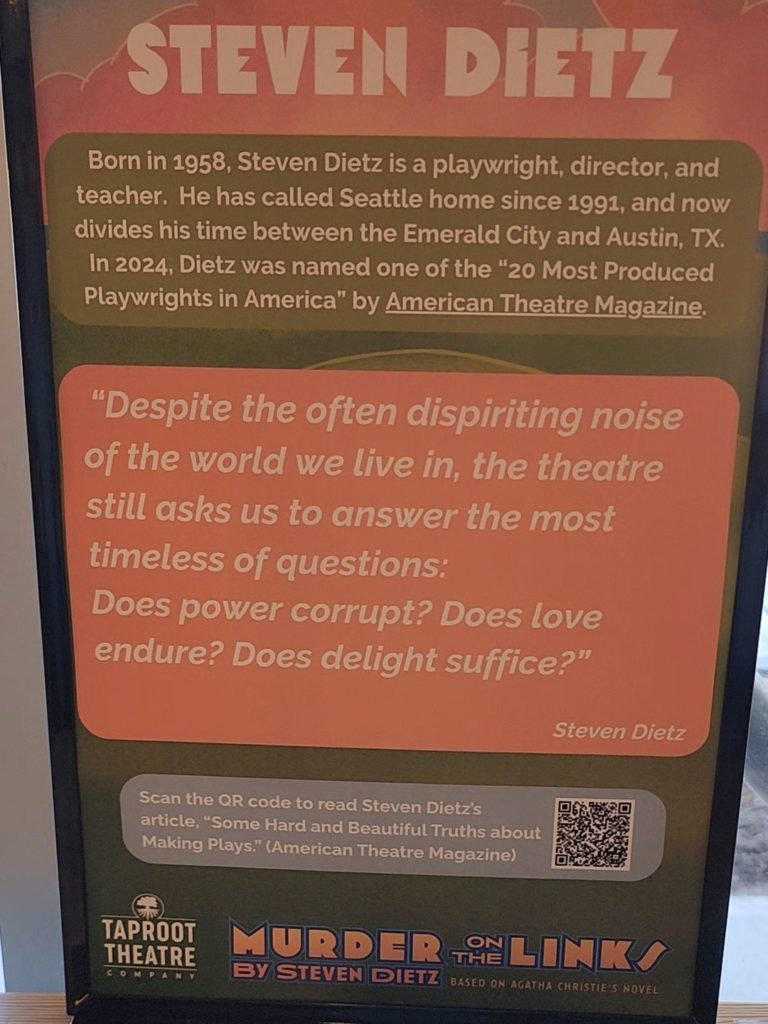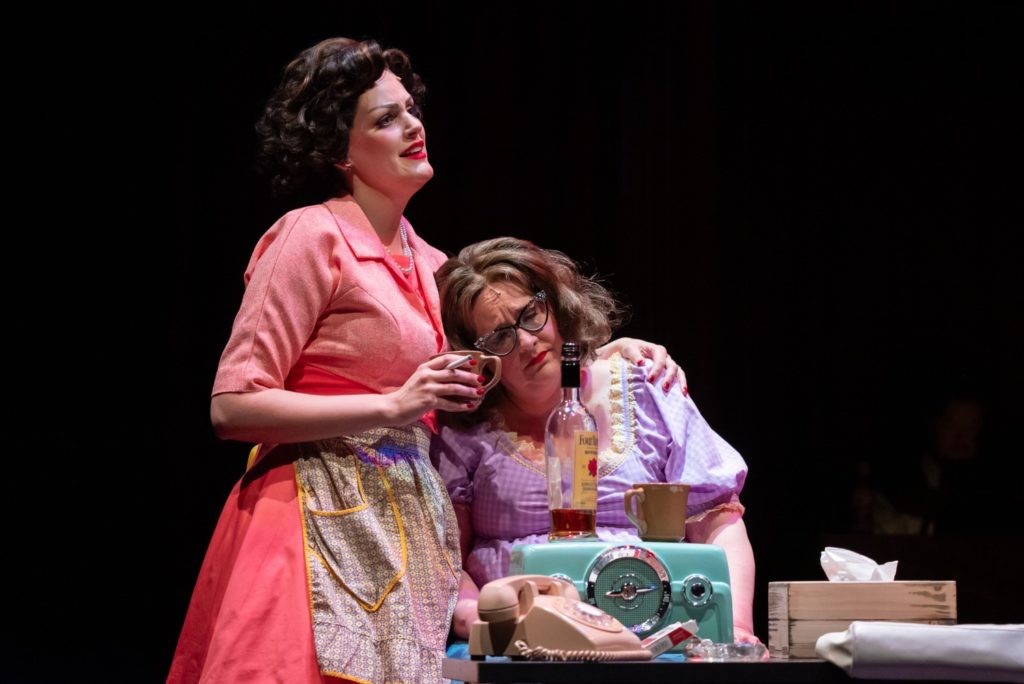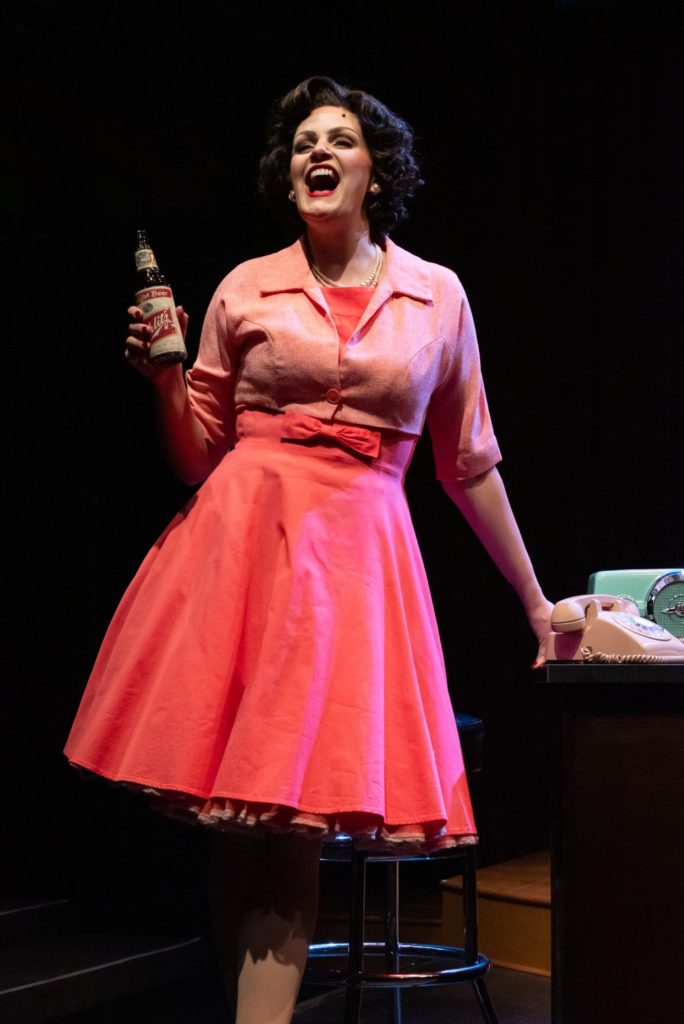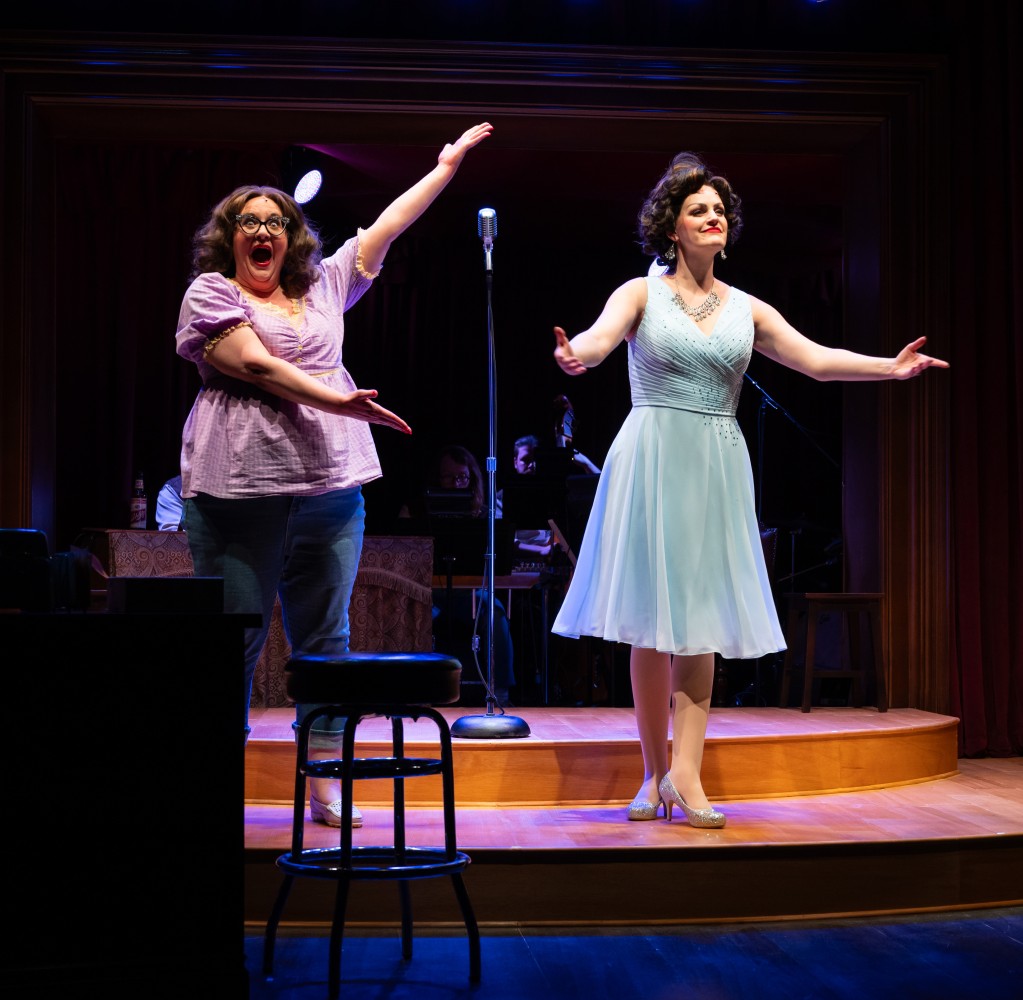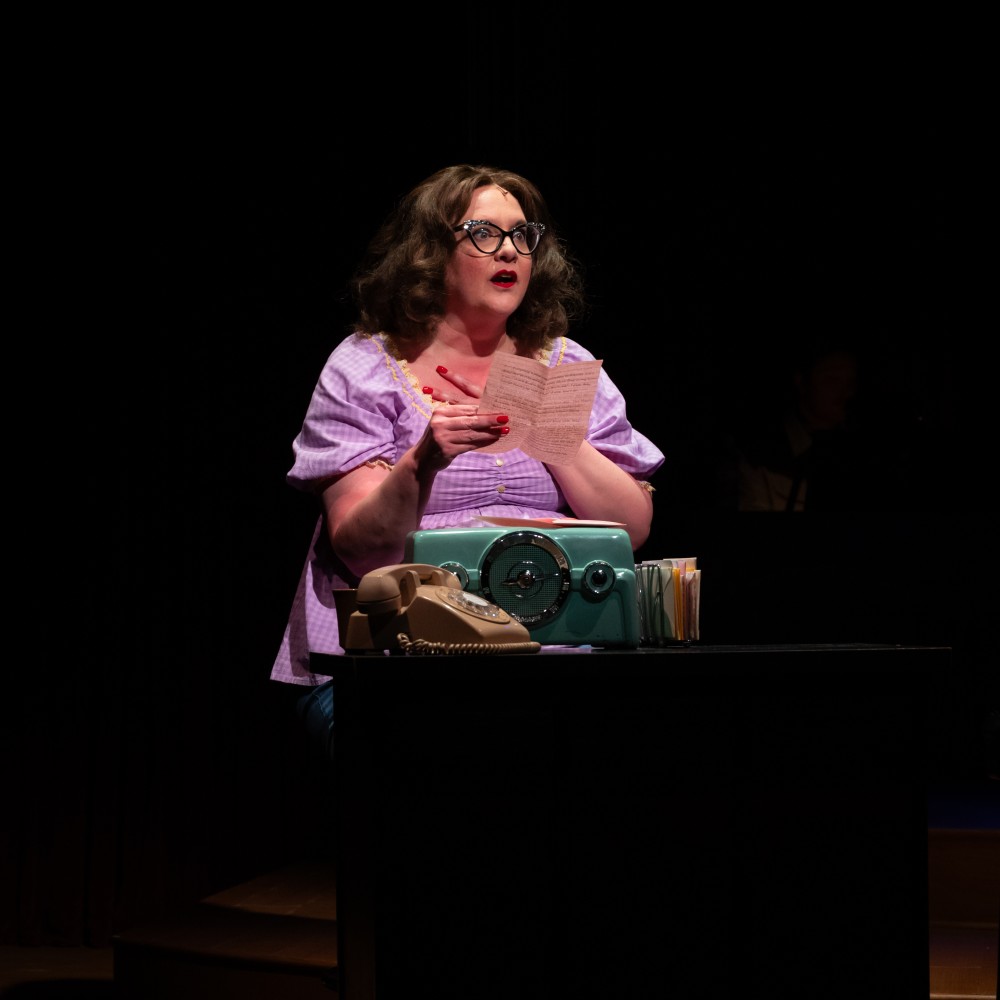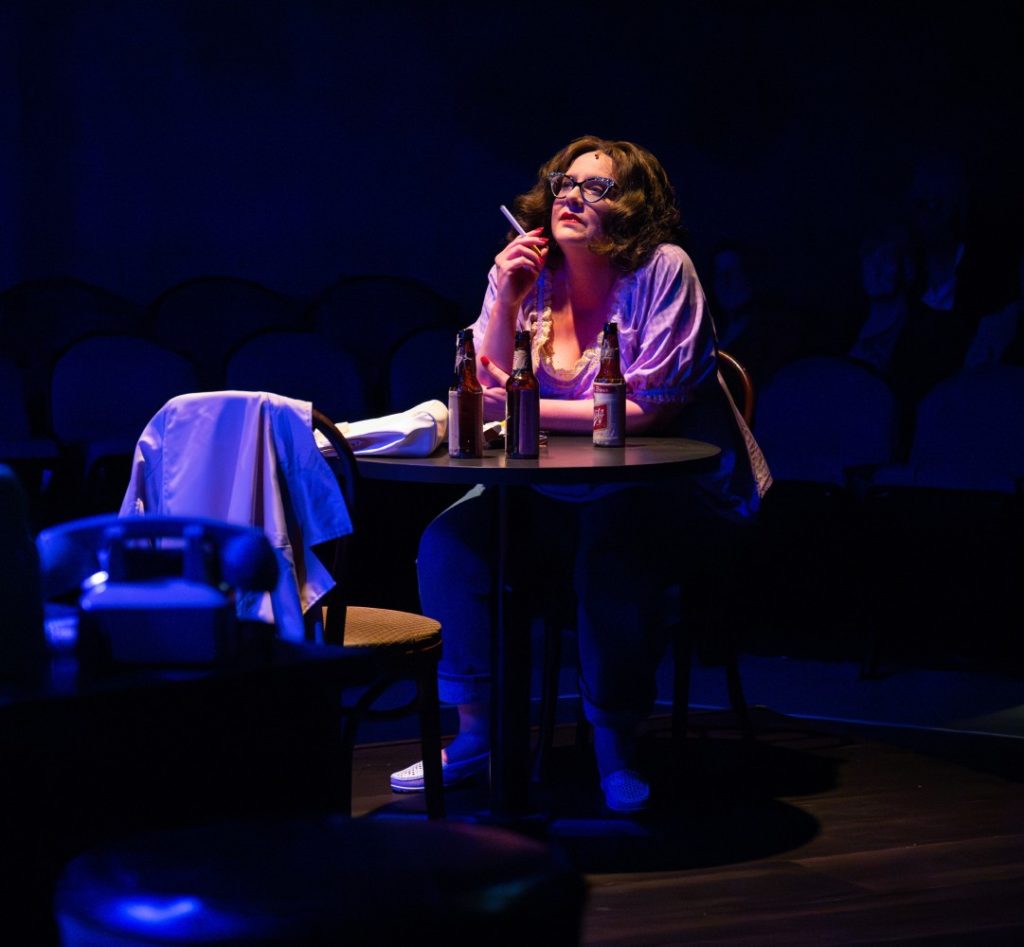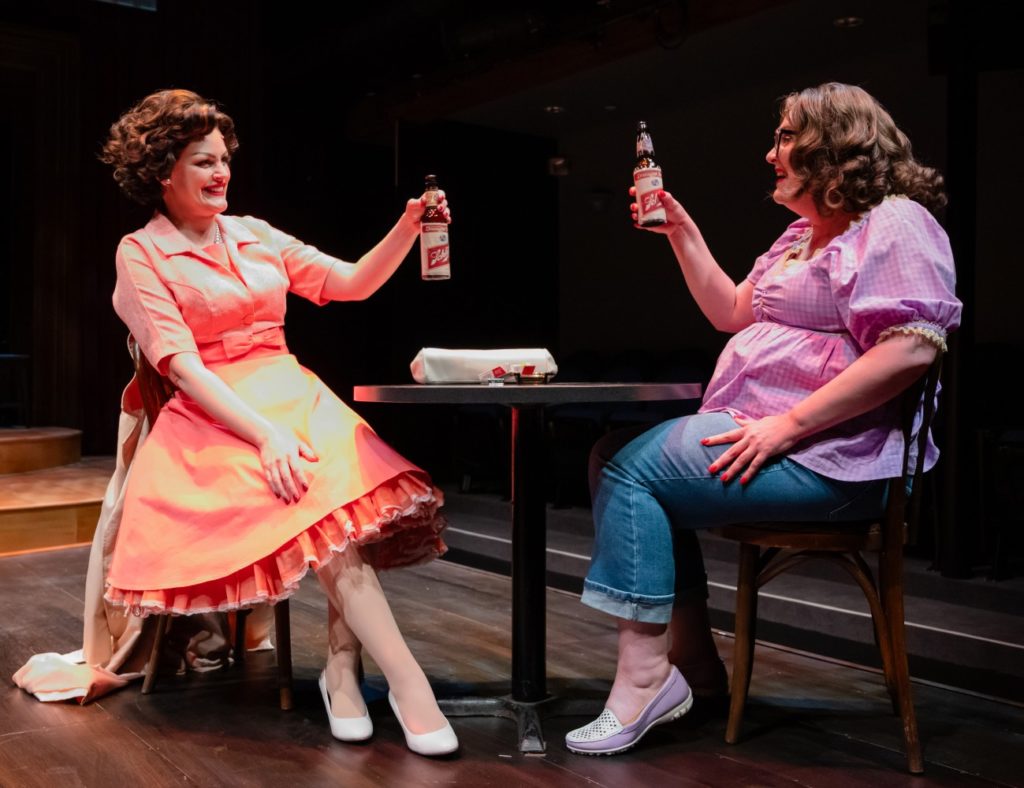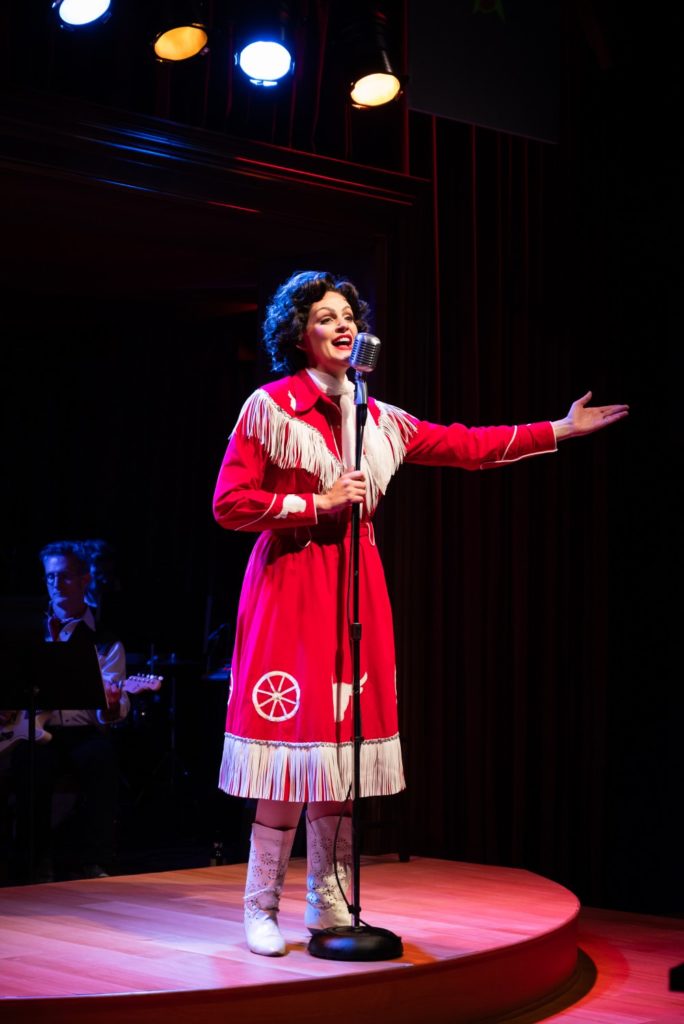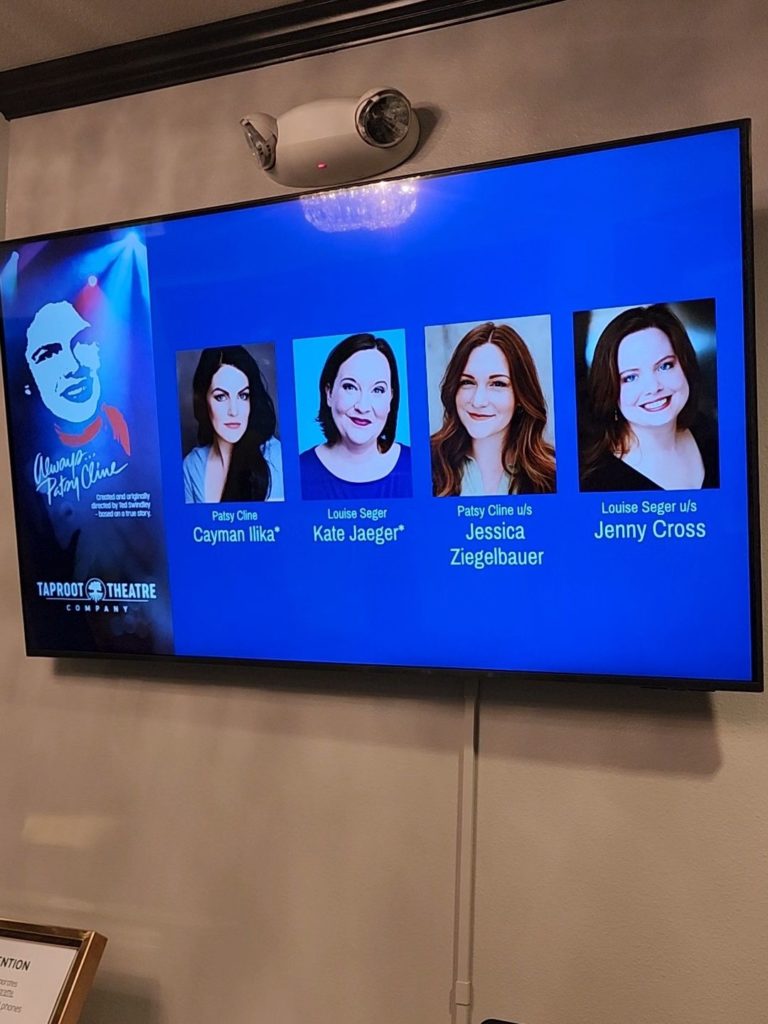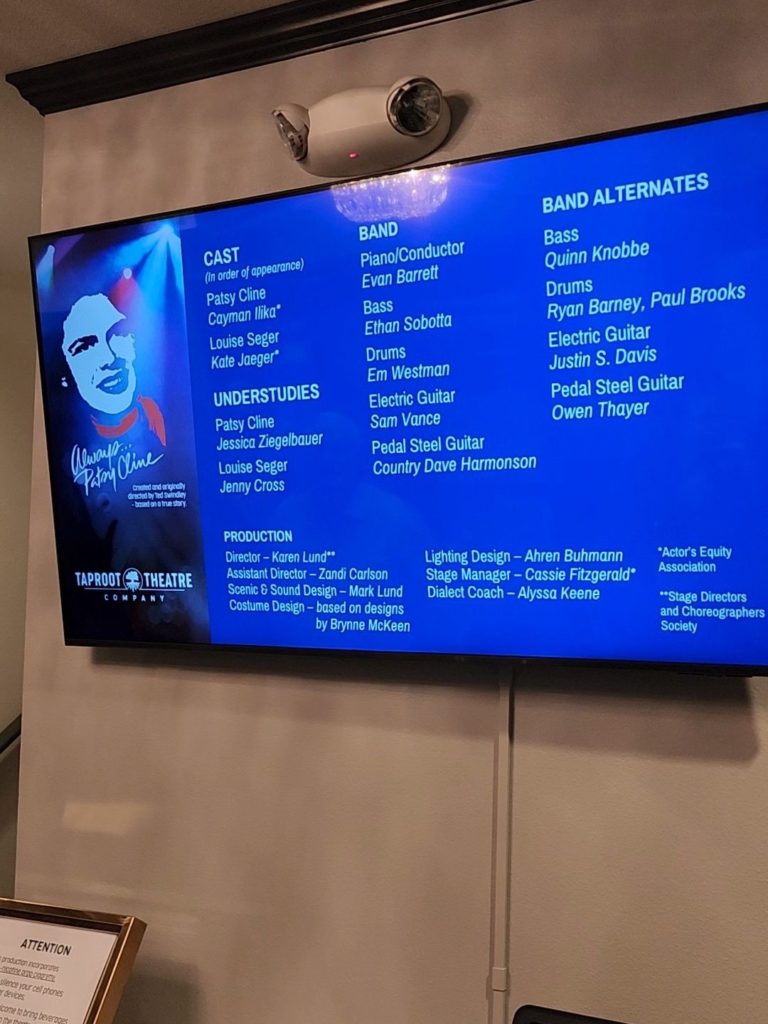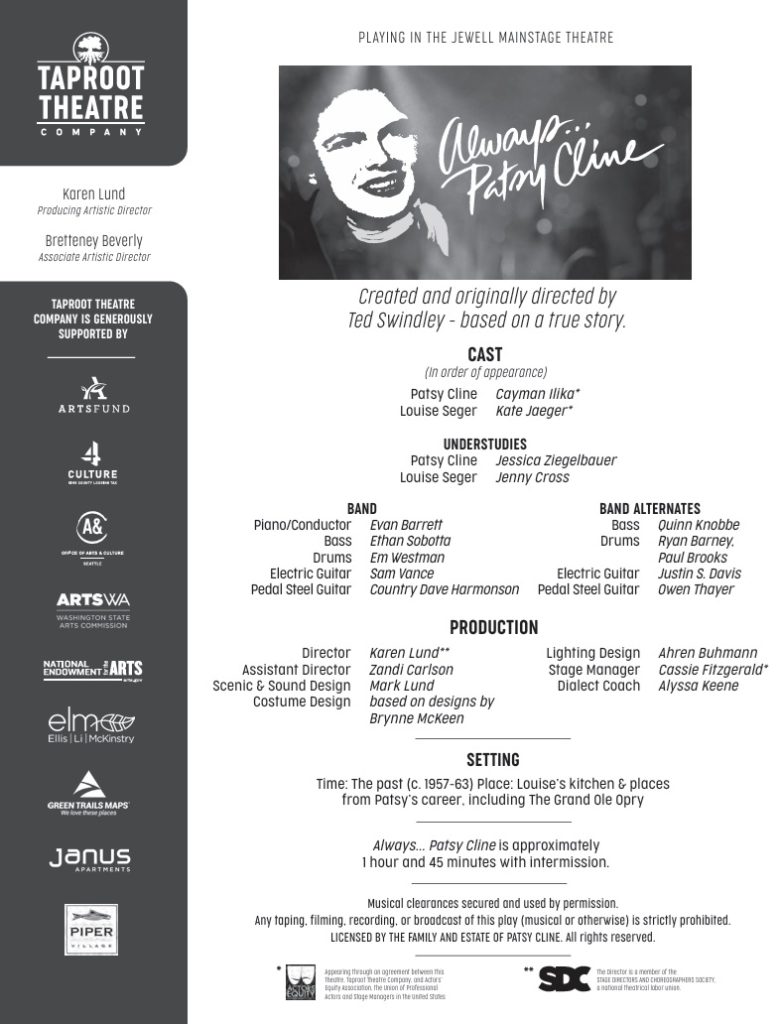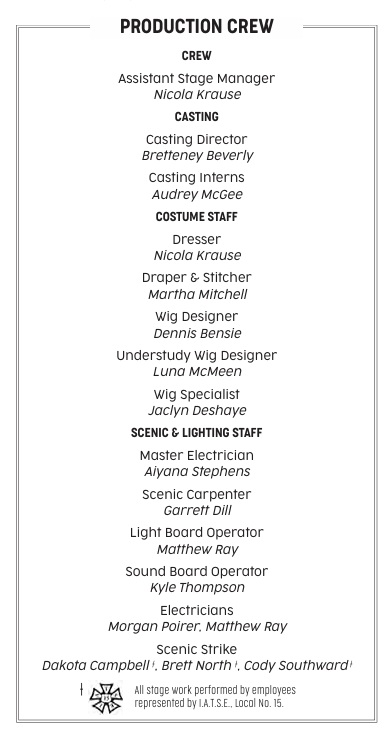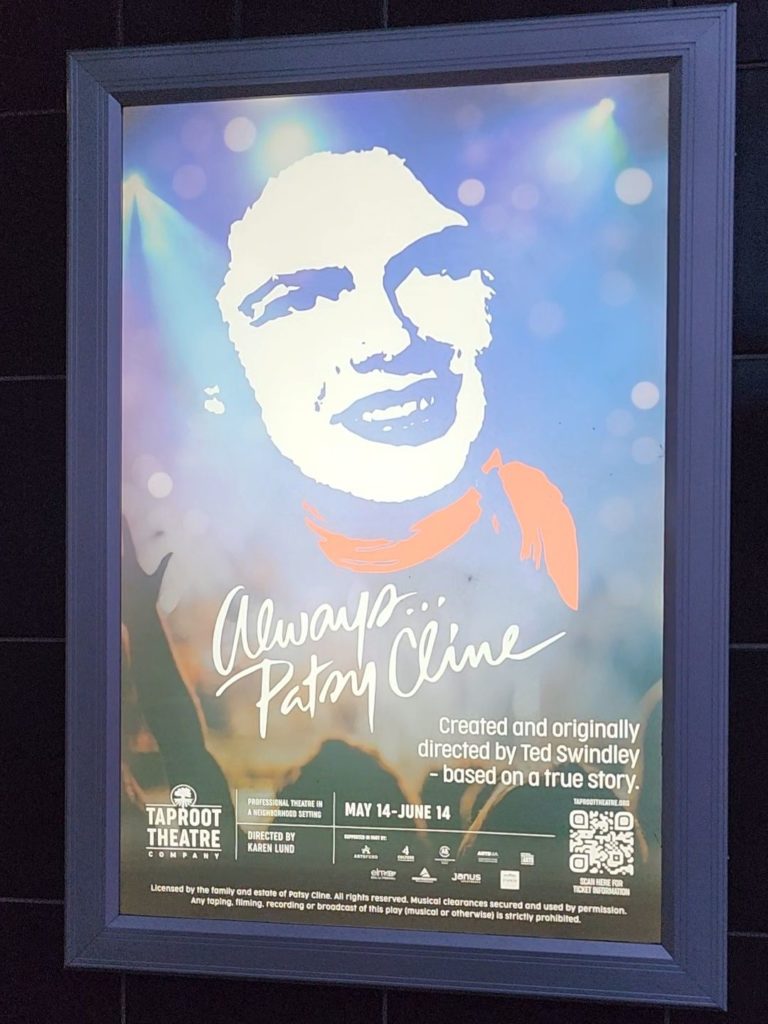@showsiveseen #OscarWilde's "The Importance of Being Earnest" #play at @TaprootTheatre starring Christopher Clark & Calder Jameson Shilling. The cast's infectious energy ignited the script. What a treat to witness @shaunyceo’s commanding stage presence up close. Flamboyant costumes by Danielle Nieves. Closes next weekend! Review: showsiveseen.com/13951 Photos: Robert Wade Director: @Bretteney Beverly Stage Mgr: Clara King #theatre #showsiveseen ♬ Best One Yet – Layup
Elevator Thoughts (aka Tweet): Oscar Wilde’s The Importance of Being Earnest play at Taproot Theatre starring Christopher Clark & Calder Jameson Shilling. The cast’s infectious energy ignited the script. What a treat to witness Shaunyce Omar’s commanding stage presence up close. Flamboyant costumes by Danielle Nieves. Closes next weekend!
See it if you enjoy plays in old-timey dialogue.
Was This the First Time I Attended a Production of this Show? Mostly, yes. Apparently, I saw snippets of the script in Champagne + Sodomy: The Art & Crime of Oscar Wilde, which I don’t remember much.
Would I See It Again 3 Years from Now? Not sure, maybe?
Mainstream Appeal: Medium
If A Random Stranger Asked What Show They Should See This Weekend, Would I Mention This Production? Yes
My Synopsis (No Spoilers): Two thick-as-thieves friends land in a whirlwind of comedic mischief when their fake identities spiral out of control.
Synopsis from the Licensor or Theatre Company: A play of love and snacks. Indulge in the delightful absurdity of Oscar Wilde’s comedic masterpiece! In this dazzling display of deception and desire, two charming bachelors bumble through a maze of mistaken identities and appetites. Sharp, smart, and satirical, Wilde called his most popular work “A trivial comedy for serious people.”
Type: Play
World Premiere: No
Several or Few Scenes: Few
Several or Few Settings/Locations: Few
Static (Stationary) or Dynamic Set: Static
Prior Exposure/Knowledge Required: Written in the late 1800s, the script brims with archaic language that can be challenging to decode. If you’re fluent in the meanings behind old-fashioned speech, you’ll likely find it easier to follow. For me, these linguistic puzzles have always been a barrier. It’s the same reason why I tend to steer clear of Shakespeare.
Defined Plot/Storyline: Yes
Union Actor(s): 1
Total Actor(s): 8
Perceived Pace of the Show: Slow to medium Speed
Was there an intermission? Yes
Length (Including Any Intermission): 2.5 hours
Other Rave(s)
- Energy: As mentioned earlier, the script was dense with archaic language, but the cast valiantly breathed remarkable life into it. Their delivery turned what could have been heavy prose into something lively, sharp, and genuinely funny. They had the audience in stitches! You could even tell the cast was having fun when one of the actors nearly broke character in laughter.
- Shaunyce Omar: I’m not used to seeing Shaunyce Omar perform in such an intimate theatre space. Experiencing her up close was striking. She brought a larger-than-life presence to the role of the bellicose, commanding, and sharply bitter Aunt Lady Bracknell.
- Miss Prism: Jonelle Jordan delighted the audience in a role that felt perfectly in her wheelhouse as Miss Prism evoking the same Austen-esque charm she brought to Sense and Sensibility. Her feigning flirtations with Reverend Chasuble (played by Nik Doner) were a joy to watch, especially the little moments when she exclaimed a subtle yelp when encountering a simple stair step. This prompted the ever-gallant reverend to offer his arm. Gurl was thirsty!
- Elegant Rivalry: Kelly Karcher (as Gwendolen Fairfax) and Alegra Batara (as Cecily Cardew) delivered a delightfully fierce rivalry over the same man. Their characters clashed with irresistible wit while struggling not to shatter the decorum of English civility as they bared their claws. I love a good cat fight.
- Costume Design: Danielle Nieves’ costumes burst with a lush, floral opulence reminiscent of an extravagant upper-class English garden party. Perhaps the pieces would be more at home in a spring theatre production instead of the PNW fall, but I’ll take it!
Rant(s)
- Thrust Stage: As I noted in Taproot Theatre’s previous Sister Act, sitting literally on the sidelines of a thrust stage evokes a certain sense of FOMO. But I recognize the financial need to sell more seats to pay for a (non-profit) production. There should be a general theatre rule to discourage placing seats past one-third of the thrust stage sidelines.
- Ending (No Spoilers): The ending twists came out of nowhere from the script and felt contrived. The over-convenience of it all gave the impression of lazy plotting. Considering the playwright was the great Oscar Wilde, I’m sure this hot take is blasphemy to the theatre community.
Other Musing(s) and Observation(s)
- Keeping It in the Family: I always find it jarring when romantic interests develop between relatives. Incest is taboo! I understand this is an older play and such themes were more common in its time. But it can be confusing to modern audiences. I even had to look it up afterward to make sure I hadn’t imagined it.
Theatre Company: Taproot Theatre
Venue: Jewell Mainstage at Taproot Theatre
Venue Physical Address: 204 N 85th St, Seattle, WA 98103
Price Range: $25-62
Dates: September 17 to November 1, 2025
Seating: Assigned Seating
Parking: Paid lot or usually-free street parking. I always find free street parking on Greenwood Ave just South of the theatre.
Like/Comment/Share my Social Media Posts About this Performance:
Buy a Ticket or Learn More:
Pictures: See production pictures below by Robert Wade.
Cast and Production Team: See after pictures below.
